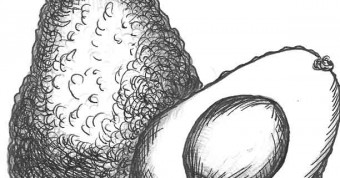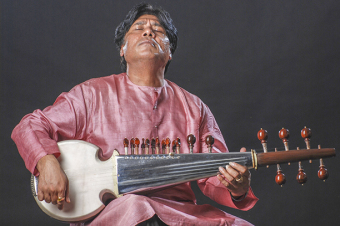A long race to a short finish line
If you are a member of Goa’s sports fraternity – and even if you’re not – the question “Will Goa be ready to host the Lusofonia Games by November?” isn’t likely to escape your mind.
So far, those in charge of setting up the infrastructure for these important games, including Chief Minister Manohar Parrikar, have shown a penchant for spawning controversies and questions over the enormous amounts of money they are spending – Rs 222 crore at last count. Given the past performance of Goa’s governing classes on every issue from garbage to water, there is reason to doubt their verbal assurances that everything will be in place on time.
There are just seven months to go for the Games. More than four of these seven months will be lost to the lashing rains of the South-West monsoons and there’s hardly any physical signal on the ground that the games will kick off in time on November 2, 2013.
The Lusofonia Games, an international sports competition held once in four years, take place between nations or territories that were formerly part of the Portuguese Empire, styled much on the lines of the Commonwealth Games where ex-British Empire nations take part.
Competition will be held in nine disciplines – athletics, basketball, football, judo, taekwondo, table tennis, volleyball, beach volleyball and wushu, which is a kind of martial sport .
Thirteen countries?Angola, Brazil, Cape Verde, East Timor, Guinea-Bissau, Macau (China), Mozambique, Portugal, Sao Tome, Principe, Equatorial Guinea, Sri Lanka and India (represented by Goa) will participate in the Games.
With no facility of international standard in place, Goa is now struggling to build three new projects, while refurbishments are proposed for two other existing playing arenas?the Nehru Stadium at Fatorda in Margao and the Tilak Maidan in the port town of Vasco.
The three new projects include an athletic stadium (Rs 61.82 crores) at Bambolim village along the National Highway 17 near the Goa Medical College, a multi-purpose indoor hall (Rs 61.25 crores) at the Goa University Complex and the indoor hall (Rs 46.77 crores) at the Peddem Sports Complex in Mapusa.
Chief Minister Manohar Parrikar heads the Lusofonia Games Organising Committee. He and his ‘Man Friday’ for the Games, Elvis Gomes, the bureaucrat he picked to head the Sports Authority of Goa which is overseeing the construction of the projects, are confident the last brick will be put in place in time before November.
Of concern to the contractors awarded the works, however, are the four months between June and September that will be lost to the monsoon, when no major outdoor civil works are possible. And the works in progress at the sites are nowhere even half complete.
Mumbai-based M/s Simplex Projects Ltd. are the contractors entrusted with the task of building the athletic stadium at Bambolim and the multi-purpose indoor hall at the nearby Goa University complex. Both these works are worth upwards of one billion rupees and the engineers posted at the sites supervising the works, despite the worried looks on their faces, do not shy away from expressing confidence of meeting deadlines.
“It’s a daunting task but we’ll jump the hurdle in good time,” said one engineer at the Bambolim site in-between blurting out instructions to a set of labourers.
Interestingly, Simplex was among Parrikar’s trusted contractors who delivered, in similarly challenging circumstances, the infrastructure needed for the International Film Festival of India, about a decade ago.
Goa’s race against time to ready the infrastructure and successfully host the Lusofonia Games 2013 in November has had more than its share of controversies which only buttresses doubts over the successful conduct of the games.
Top on the list of such controversies was the shocking suspension of the Indian Olympic Association by the International Olympic Committee a little over three months ago for failing to hold elections in accordance with its charter.
The Lusofonia Games are conducted under the Olympic banner as National Olympic Committees are involved. And IOC’s suspension puts a huge question mark over the conduct of the Games in Goa.
The Associacao dos Comites Olimpicos de Lingua Oficial Portuguesa (ACOLOP) or the Association of the Portuguese Speaking Olympic Committees, the parent body of the Lusofonia games, is affiliated with the IOC and if the ban extends for a year, no participating country will risk the wrath of the IOC and participate. Also, international sporting federations, who conduct the respective games at the event, will also certainly stay away.
Elvis Gomes said as much in words? “There’s no question of holding the Lusofonia Games if the IOC ban on the Indian Olympic Association stays.”
Gomes, however, pins his hopes on an “early resolution” of the stand-off between IOC and IOA.
Another controversy that threatens to derail other organisational schedules for the Lusofonia Games is the Goa government’s recent appointment of two Delhi-based officials as ‘advisors’ to the organising committee.
Both the officials, Rajkumar Sancheti and V.V. Saxena, have the Commonwealth Games taint on them and were probed in last year’s infamous CWG infrastructure scam ?when the game’s organizers were accused of pocketing thousands of crores ? along with disgraced former Indian Olympic Association (IOA) chief Suresh Kalmadi.
Shripad Naik, one of Goa’s three members of Parliament, quit the committee in a huff over the appointment, saying he felt “suffocated” at the way things were being conducted within the organising committee. Shripad, incidentally, also heads the Goa Olympic Association as its honorary president.
“There’s a lot of suffocation. It was not right being part of the Lusofonia Games team and so I resigned,” Shripad had told the media soon after he quit.
According to Elvis Gomes, however, Sancheti and Saxena were recommended by the CWG Organising Committee. He argued that they had not been hand-picked by the state government.
Parrikar himself had kicked up a row when he claimed that Rs 78 crores received from the Central government for the Games had “disappeared”, hinting at malfeasance indulged in by the government from whom he took over reigns after the 2012 elections.
However, he later clarified that the games would be held in time and alternative funds had been set aside.
Another key BJP legislator, Vishnu Wagh, even questioned the very logic of Goa hosting the games.
Goa, he said, is not a country and India was never ruled by the Portuguese colonialists, so there’s no reason why the games should be held here.
But away from these and other controversies, officials in-charge of the sports ministry in Goa are quietly going ahead with the tasks at hand. For instance, the organising committee has already bagged an assurance from the CWG organising committee that the Rs 57 crore aerostat, a gigantic moored balloon, which had audiences across the globe drop jaws, will be lent for the opening and closing ceremonies, for free.
Goa’s education department officials are also engaged with authorities of schools across the state to time the mid-year vacation at Diwali to coincide with the schedule of the games. All schools have been asked not to hold any extra classes during the nine days between November 2 and November 10.
Besides giving the students the opportunity of sharing the thrill of the games, it will also give the organising committee the luxury of inviting students to be volunteers, which they will need in plenty.
The Lusofonia Games could emerge as a grand spectacle and feast of sports, with the bonus of new stadia and sports venues in Goa, if only those clenched fingers uncross themselves in time.
.
.
.




